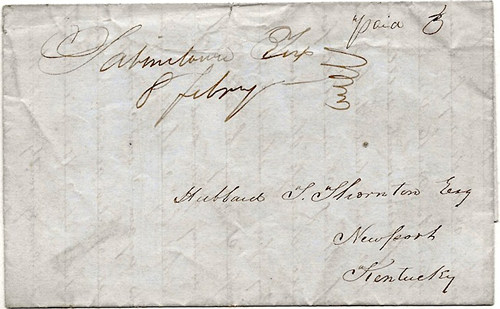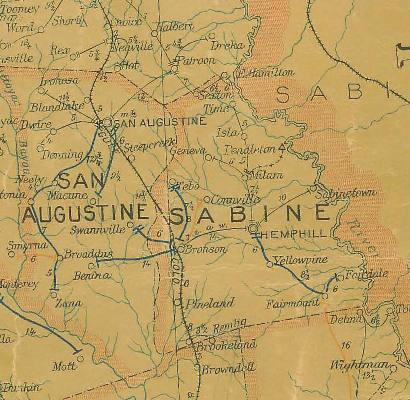Sabinetown, Texas, AKA Sabine Town. (original) (raw)
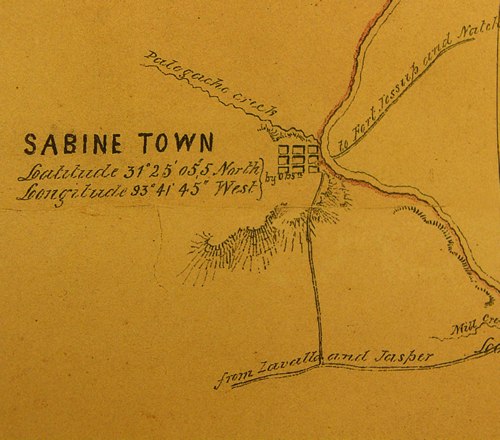
Sabine Town
Courtesy Texas General Land Office
History in a Pecan Shell
Another once-prosperous town that depended on river commerce, Sabinetown was located where Gaucho Creek joined the Sabine River. The townsite, which had been surveyed in 1839 was built on land donated by Shadrach Morris.
It soon became a shipping point for cotton and in addition to primary businesses, Sabinetown had a customs house, warehouses, a hotel, a clock factory (!) and a trading post for commerce with the Cherokee Indians.
During the Civil War, Sabinetown was fortified for the inevitable invasion by the Union Navy, an action that was thwarted by Dick Dowling and his handful of volunteers at Sabine Pass.
The town declined with the fall of the Confederacy and the advances of the railroads into East Texas slowed barge traffic considerably. It is said the last paddle-wheeled steamship to leave Sabinetown was in the year 1897. Sabinetown�s post office opened and closed periodically, closing its doors for good during the Great Depression.
When Toledo Bend Reservoir was built in the 1960s, nearly all of old Sabinetown was submerged. Newer communities are found around the older site, but only the 1936 Centennial marker stands to serve as a memorial for the historic community.
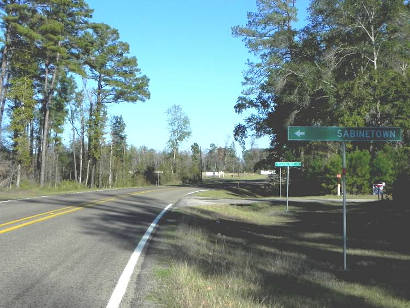
Sabine Town Cemetery
Historical Marker:
"S. H. Morris sold 200 acres of his land grant in the 1830s for the establishment of the town of Sabine. Businesses included a post office, customs house, wagon factory, brick kiln and a tanning yard. The Sabine Town Cemetery contains 18 known graves; Mary Jane Scott's is the earliest recorded burial in 1842. The graveyard was in use until 1907; Harry C. Maunds is the last recorded burial. In 1970 the James Frederick Gomer Chapter of the Daughters of the Republic of Texas in Hemphill took over maintenance of the site.
1997"
Sabine Town Chronicles
The Lady in Blue by Bob Bowman
Mother Maria de Jesus de Agreda, a cloistered abbess who preached Christianity to the Indians of Mexico and Texas in the 1600s in a manner known as bi-location....
The last reported appearance of the lady in blue was in the 1840s when a mysterious young woman wearing a long blue dress came into the homes of families stricken by a �black tongue� epidemic at old Sabinetown on the Sabine River.
She remained in the community for days, brewing a tea from forest herbs, tending to the ill, weeping over the dead, and never sleeping. When the epidemic ran its course, she disappeared as mysteriously as she appeared.
Sabinetown, Texas Centennial Marker
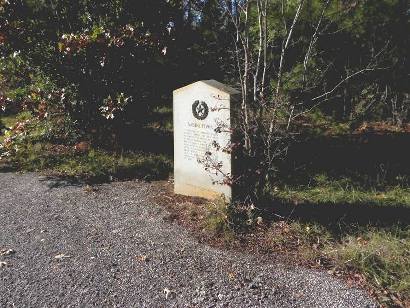
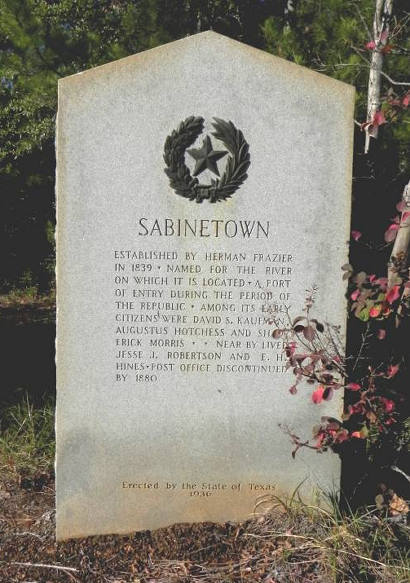
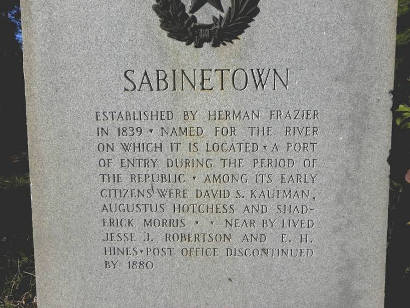
1907 Sabine County Postal Map showing Sabinetown
(E of Hemphill)
From Texas state map #2090
Courtesy Texas General Land Office
Texas Escapes, in its purpose to preserve historic, endangered and vanishing Texas, asks that anyone wishing to share their local history, stories, landmarks and recent or vintage photos, please contact us.

